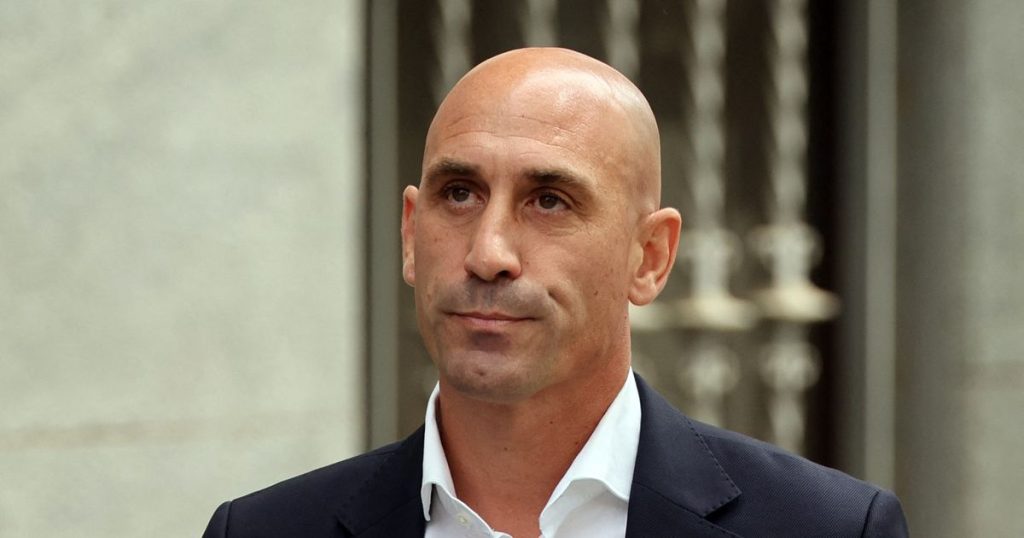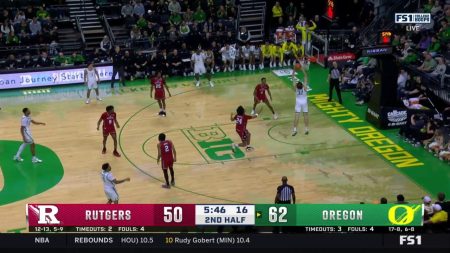The Legal Case Against Luis Rubiales and the Controversy Surrounding the Kissing Incident
In a high-profile legal case that has drawn significant attention in Spain and beyond, prosecutors are seeking a two-and-a-half-year prison sentence for Luis Rubiales, the former president of the Spanish Football Federation (RFEF). The charges against Rubiales stem from an incident involving Jenni Hermoso, a star player of the Spanish women’s national team, following the team’s historic victory at the 2023 Women’s World Cup in Australia. Rubiales, who resigned from his position amid the fallout, has publicly acknowledged that he made a mistake by kissing Hermoso during the post-match celebrations but has denied any criminal wrongdoing.
The incident in question occurred on August 20, 2023, as the Spanish team celebrated their World Cup triumph in Sydney. Video footage captured Rubiales kissing Hermoso, which sparked widespread controversy and debate. While Rubiales has apologized for his actions, claiming they were a misguided display of instinctive joy, Hermoso and her legal team have accused him of sexual assault, asserting that the kiss was non-consensual and entrenched in a broader culture of sexism and misconduct within Spanish football.
Prosecutors argue that Rubiales’ actions constitute a serious breach of consent and personal boundaries, warranting a significant prison sentence. They have also highlighted the power imbalance between Rubiales, as the head of the RFEF, and Hermoso, as a player under his jurisdiction, which they claim exacerbated the gravity of the incident. Hermoso, who has been a vocal advocate for women’s rights and equality in football, has expressed her determination to seek justice and to shed light on the systemic issues she believes are pervasive in the sport.
The Broader Implications of the Case for Women’s Football and Workplace Culture
The case against Luis Rubiales has far-reaching implications that extend beyond the specific incident involving Jenni Hermoso. It has sparked a national conversation in Spain about workplace culture, consent, and the treatment of women in football, a sport that has long been dominated by men. Many have praised Hermoso for her courage in speaking out, while others have criticized the broader structures that allowed such behavior to go unchecked.
In the wake of the scandal, the Spanish Football Federation has faced intense scrutiny, with calls for greater accountability and reforms to address gender-based discrimination and harassment. The case has also drawn attention to the challenges faced by women in football, both on and off the pitch, and has reignited discussions about the need for stronger policies and protections to ensure equality and respect.
Meanwhile, Rubiales’ defenders argue that the incident has been blown out of proportion and that his actions, while inappropriate, do not rise to the level of criminal conduct. They point to the fact that Rubiales has admitted his mistake and apologized, suggesting that a prison sentence would be disproportionate to the offense.
The Aftermath and Reactions from the Football Community
The fallout from the incident has been significant, with Rubiales resigning as president of the RFEF shortly after the allegations became public. His resignation was seen as a step toward accountability, but many critics argue that the federation itself must take greater responsibility for fostering a culture of respect and equity.
Players and staff within the Spanish women’s national team have been vocal in their support for Hermoso, while some have also expressed frustration with what they perceive as a lack of meaningful action from football authorities. The case has also drawn international attention, with figures from the global football community weighing in on the importance of addressing misconduct and promoting inclusivity.
In a statement released after the incident, Hermoso emphasized the importance of consent and the need for accountability, saying, “No one should ever feel disrespected or unsafe, especially in a moment of celebration and triumph.” Her words have resonated widely, inspiring many to reflect on the broader implications of the case.
The Legal Proceedings and the Road Ahead
As the legal proceedings against Rubiales continue, both sides have presented their arguments in court. Prosecutors have emphasized the seriousness of the alleged offense and the need for a strong sentence to deter similar behavior in the future. Hermoso’s legal team has also submitted evidence, including testimony from witnesses and experts, to support their claims.
Rubiales’ defense team, on the other hand, has argued that the kiss was a spontaneous and misguided gesture rather than a deliberate act of assault. They have also pointed to Rubiales’ voluntary resignation and public apology as evidence of his willingness to take responsibility for his actions.
The outcome of the case is likely to have significant repercussions for both Rubiales and the broader football community. If convicted, Rubiales could face serious consequences, including a prison sentence and a permanent ban from involvement in football. Regardless of the verdict, the case has already had a profound impact on the conversation around gender and power in sports.
Conclusion: A Turning Point for Women’s Football and Beyond
The case involving Luis Rubiales and Jenni Hermoso represents a pivotal moment in the fight for equality and respect in football. It has brought to light the challenges faced by women in a sport that has traditionally been dominated by men and has sparked a necessary conversation about consent, accountability, and workplace culture.
While the legal proceedings are ongoing, the broader implications of the case are already being felt. The incident has inspired many to advocate for change, both within football and beyond, and has highlighted the importance of creating environments where everyone feels safe, respected, and valued. As the case moves forward, it will be important to continue this conversation and to work toward meaningful reforms that promote equality and justice for all.
Ultimately, the outcome of the case will serve as a testament to the power of courage and advocacy in driving change. Whether through legal action or public dialogue, the incident has proven that no one is above accountability and that the voices of those who have been wronged will not be silenced.












